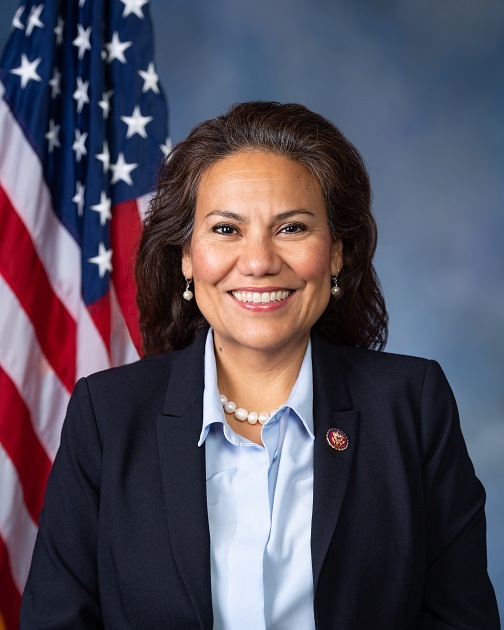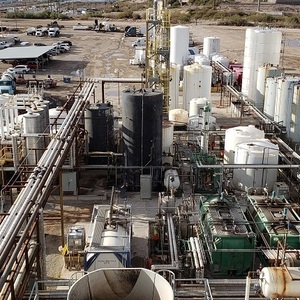Rep. Escobar to visit Rio Valley Biofuels plant in El Paso, Texas



Photo: Rio Valley Biofuels
November 25, 2019
BY Ron Kotrba
U.S. Rep. Veronica Escobar, co-sponsor of the Biodiesel Tax Credit Extension Act (H.R. 2089), is scheduled to visit Rio Valley Biofuels, a biodiesel production facility in El Paso, Texas, on Nov. 26. Escobar serves Texas’ 16th District, the seat previously held by former Democratic presidential candidate Beto O’Rourke.
Rio Valley Biofuels started producing biodiesel at its community-scale plant in Anthony, New Mexico, in 2006. Several years ago, its New Mexico facility was destroyed by fire and, through an arrangement with Global Alternative Fuels in El Paso, the company relocated to west Texas where it restarted production and grew to produce 15 million gallons of biodiesel per year.
“Our continuing goal is to provide affordable biodiesel to businesses and farms in the Southwest,” the company stated. “We started producing biodiesel in 2006 for sale locally to help businesses and farms in the area and now distribute our biodiesel throughout Texas, New Mexico, Arizona, and the western United States. Rio Valley Biofuels is recognized as a leader in the local community as we provide employment and growth opportunity to residents and businesses in our area and directly support 150 jobs.”
Advertisement
H.R. 2089 provides a two-year extension of the biodiesel tax credit and, if passed, would reinstate the incentive retroactively from its expiration at the end of 2017 for last year through this year.
“Like Rio Valley Biofuels, producers and businesses at every stage of the biodiesel production and consumption across the country rely on these tax credits to plan their investments, grow their businesses, and pass on the savings to consumers,” Rio Valley Biofuels stated. “We currently provide quality biodiesel year-round to a large customer base including, truck stops, school buses, government fleets, commercial fleets, farms and individuals. When we produce and supply the local fuels market, we dramatically reduce carbon emissions.”
Advertisement
Related Stories
The U.S EPA on July 17 released data showing more than 1.9 billion RINs were generated under the RFS during June, down 11% when compared to the same month of last year. Total RIN generation for the first half of 2025 reached 11.17 billion.
The U.S. EPA on July 17 published updated small refinery exemption (SRE) data, reporting that six new SRE petitions have been filed under the RFS during the past month. A total of 195 SRE petitions are now pending.
The USDA has announced it will delay opening the first quarterly grant application window for FY 2026 REAP funding. The agency cited both an application backlog and the need to disincentivize solar projects as reasons for the delay.
CoBank’s latest quarterly research report, released July 10, highlights current uncertainty around the implementation of three biofuel policies, RFS RVOs, small refinery exemptions (SREs) and the 45Z clean fuels production tax credit.
The U.S. EPA on July 8 hosted virtual public hearing to gather input on the agency’s recently released proposed rule to set 2026 and 2027 RFS RVOs. Members of the biofuel industry were among those to offer testimony during the event.
Upcoming Events










